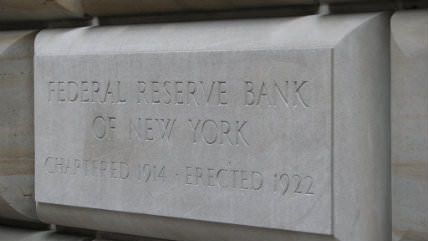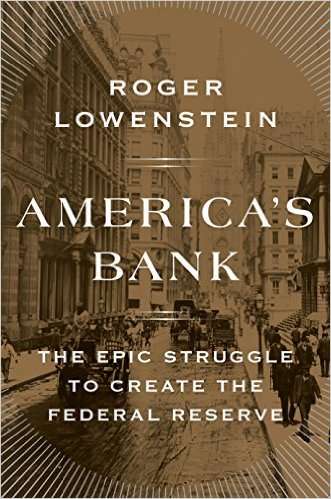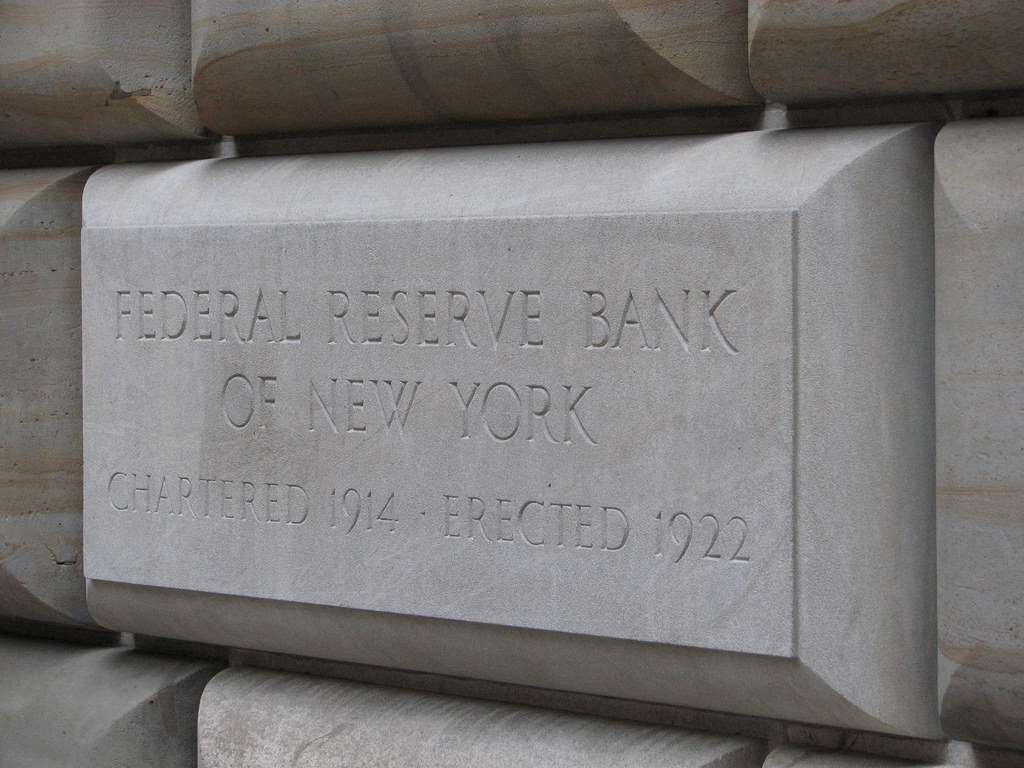Citigroup Executive Reviews Book on the Federal Reserve
An executive whose bank faltered while he was highly compensated reviews a book on the Fed for the New York Times.


The publication this week of a new history of the founding of the Federal Reserve Bank might provide an opportunity for an objective reevaluation of whether the American central bank, as created by the Federal Reserve Act in 1913, was a good idea. Alas, if The New York Times book review's handling of the story is any example, there will be no such look.
Sunday's Times featured a review by Robert E. Rubin of Roger Lowenstein's new book, America's Bank: The Epic Struggle to Create the Federal Reserve. The Times identifies the reviewer as "a co-chairman of the Council on Foreign Relations" who "was Treasury secretary from 1995 to 1999." Unmentioned is Rubin's role as chairman of the executive committee of Citigroup during a period when that bank required a taxpayer-funded rescue. Rubin was reportedly earning a Citigroup salary of $1 million a year and a $14 million annual "guaranteed bonus," compensation that totaled from 1999 to 2009 about $126 million. The Times identification also omits Rubin's service on Harvard's small governing board, the Harvard Corporation, at a time when Harvard lost $1 billion betting incorrectly, mostly against JPMorgan Chase, on the direction of future interest rates.
Rubin's article would be problematic even if it had been written by an unknown freelancer. But understanding Rubin as a bank executive whose bank faltered while he was highly compensated puts the Times article, and its view of the Fed, in a different context.
The review is a rehash of the standard pro-Fed arguments. The same talking points can also be found in the recent memoir by Ben Bernanke, modestly titled, The Courage To Act. Rubin makes reference to "the ferocious panic of 1907." As ferocious as that panic was, it somehow seems to have receded in memory in comparison to the Great Depression and the financial crisis of 2008, both of which occurred notwithstanding the existence of the Federal Reserve set up in part to prevent panics.
The Times review refers to "the immigrant financier Paul Warburg, virtually forgotten today." Not by anyone who read Ron Chernow's wonderful book The Warburgs.

Rubin's big miss, though, comes in a paragraph that blames the Fed's inaction for bank failures in the 1930s and for inflation in the 1970s. He writes, "During the early years of the Great Depression, for example, instead of using its lender-of-last-resort powers, the Fed stood by while roughly 40 percent of America's banks failed. And these bank failures contributed greatly to the severity and duration of the Depression."
Yet an economist at Columbia University, Charles Calomiris, notes that one reason the banks were failing was what he calls "currency risk":
Depositors had reason to fear that President Roosevelt would leave the gold standard, which gave them a special reason to want to convert their deposits into (high-valued) dollars before devaluation of the dollar.
Calomiris writes:
Many commentators have faulted the Federal Reserve for failing to prevent bank failures with more aggressive discount window lending. While it is certainly true that expansionary monetary policy, particularly in 1929-31, could have made an enormous difference in preventing bank distress (through its effects on macroeconomic fundamentals), that is not the same as saying that more generous terms at the discount window (holding constant the overall monetary policy stance) would have made much of a difference. Discount window lending only helps preserve banks that are suffering from illiquidity, which was not the problem for most banks in the 1930s that were experiencing large depositor withdrawals.
Similarly, blaming the Fed for the inflation of the 1970s lets off the hook Richard Nixon. Nixon ended the convertibility of the dollar to gold, a decision that helped to set off the great inflation.
Rubin's Times review also touts the importance of "protecting the independence of the Fed from political influence." Independence from political influence is a nice way of saying "unaccountable in a democracy."
If all this sounds arcane or abstruse, it's too bad, because money is too important to be left to bankers. A lot of those who lost their jobs or their home in the 2008 financial crisis did not land as pleasantly as has Rubin. Perhaps if the Fed were less "independent," their voices, not Rubin's, would be the ones passing judgment on the central bank's performance, or even on its existence.


Show Comments (15)